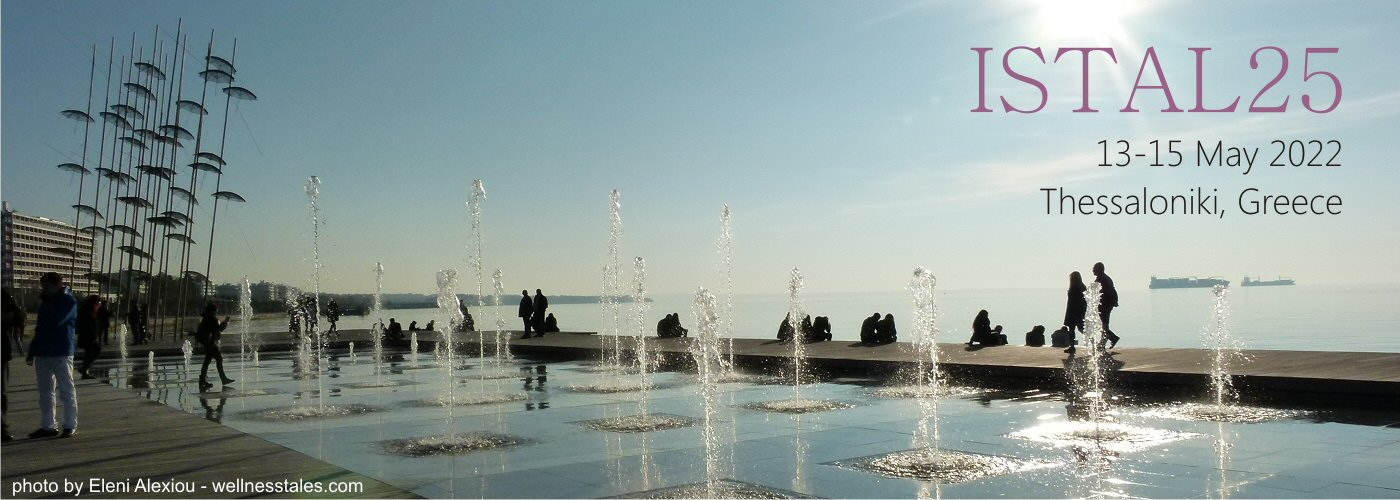THEMATIC WORKSHOP
Workshop organizer: Kyriaki Kourouni, Aristotle University of Thessaloniki in collaboration with Konstantinos Stampoulis, Wikimedia Community User Group Greece
The aim of the workshop is to bring together participants who are interested in seeing the dynamics and potential of Wikipedia and how they can incorporate Wikipedia-related tasks into their research and/or classroom practice. It is divided in two parts.
Part I: Wikipedia and/in Research. This part will focus on how Wikipedia has been used in and for research so far and present case studies using Wikipedia in various teaching/learning environments. Special emphasis will be given to examples from the translation classroom.
Part II: Hands-on tasks. The last part of the workshop will offer participants the opportunity to work with Wikipedia and its tools.
Participants are kindly requested to bring their own laptops in order to make the most out of the hands-on session.
Presentations
Title: Wikipedia for (translation) research and teaching
There seems to be a growing interest in research related to or based on Wikipedia during recent years, covering a spectrum from philosophy to pharmacology, as seen in Gallo and Petrucco (2021), despite prevalent scepticism regarding the credibility of Wikipedia as such (cf. Magnus, 2009). At the same time, Wikipedia is becoming a useful tool in the translation classroom (Dolmaya, 2012; Szymczak, 2013; Al-Shehari, 2017), either in the form of a single classroom task or within the framework of larger-scale events such as edit-a-thons.
On the basis of this trend, the aim of the presentation is twofold: to highlight areas where Wikipedia has been used in and for research as well as showcase and comment on studies and initiatives where Wikipedia has been used in teaching/learning environments. Emphasis will be placed on examples from the translation classroom. References and links to the foreign language/the multilingual classroom will be made as well. Initiatives such as the Wikicommittee established within the framework of the European Society for Translation Studies will be presented and discussed.
It is envisaged that the potential of Wikipedia as a flexible tool for dissemination and use both for research purposes and as a teaching resource will become evident and will attract researchers and practitioners alike to join Wikipedia and come forth with fruitful projects and synergies.
References
Al-Shehari, K. (2017). Collaborative learning: Trainee translators tasked to translate Wikipedia entries from English into Arabic. The Interpreter and Translator Trainer, 11(4), 357–372.
Dolmaya, M. J. (2012). Analyzing the crowdsourcing model and its impact on public perceptions of translation. The Translator, 18 (2), 167–191. https://doi.org/10.1080/13556509.2012.10799507
Gallo, V., & Petrucco, C. (Eds.) (2021). Wikipedia in Academia. Padova: University Press.
Magnus, P. D. (2009). On trusting Wikipedia. Episteme, 6, 74–90.
Szymczak, P. (2013). Translating Wikipedia articles: A preliminary report on authentic translation projects in formal translator training. Acta Philologica, 44, 62–70.
Title: Working with/in Wikipedia: Hands-on workshop
The hands-on component of the thematic workshop will introduce participants to working with Wikipedia and its tools. It will include a presentation of the concept behind Wikipedia, the rules of conduct users should adhere to as well as the actual cloud environment. The presentation will be followed by a series of tasks such as creating, editing and translating Wikipedia articles. Guidance on how to coordinate editathons and promote relevant collaborative projects will also be provided. Participants will have the opportunity to ask questions and discuss project ideas pertaining to their specific areas of interest that may arise.
The hands-on component is mainly addressed to participants with no prior knowledge of Wikipedia editing. More advanced Wikipedia users as well as participants working on areas beyond translator training are more than welcome as well.
Participants are required to bring their own laptops.
